This is the second article in the “Bringing Our Time to Life” series, highlighting how U of G is taking action on our strategic plan. View all Strategic Plan stories.
As a University, we strive to foster inclusive excellence, founded on the principles of reconciliation and diversity. We know that our community thrives when every member feels welcome, included, and has a sense of belonging.
The second priority outlined in Our Time: University of Guelph Strategic Plan 2022-27 calls us to transform our University through Indigenization and Equity, Diversity and Inclusion (IEDI).
The choice of the word transform is intentional – this call is deeper than just attracting a diverse group of students, faculty and staff. This includes transforming our human resources, governance, and student services systems and practices across the University. In turn, creating this inclusive environment will help us recruit and retain a diverse student, faculty and staff body who are fully supported at U of G.
Here are some of the ways we are transforming our University through IEDI:
Black and Indigenous Hiring Initiative removes systemic barriers
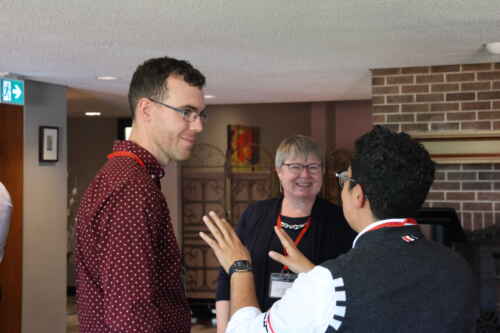
Launched in 2022, the Black and Indigenous Hiring Initiative significantly increases the representation of Black and Indigenous faculty and staff members on campus. Committed to recruiting, developing, and retaining diverse faculty and staff, U of G aims to close the racial equity gap, build an inclusive community, and remove systemic barriers experienced by equity-deserving groups in higher education.
To date, the University has hired eight faculty and three staff under this initiative. To support their ongoing career growth at the University, U of G will provide support, mentorship and resources for the new staff and faculty. U of G also remains committed to providing ongoing IEDI training to all students, faculty, and staff.
Learning to Bounce develops emotional skills for learning
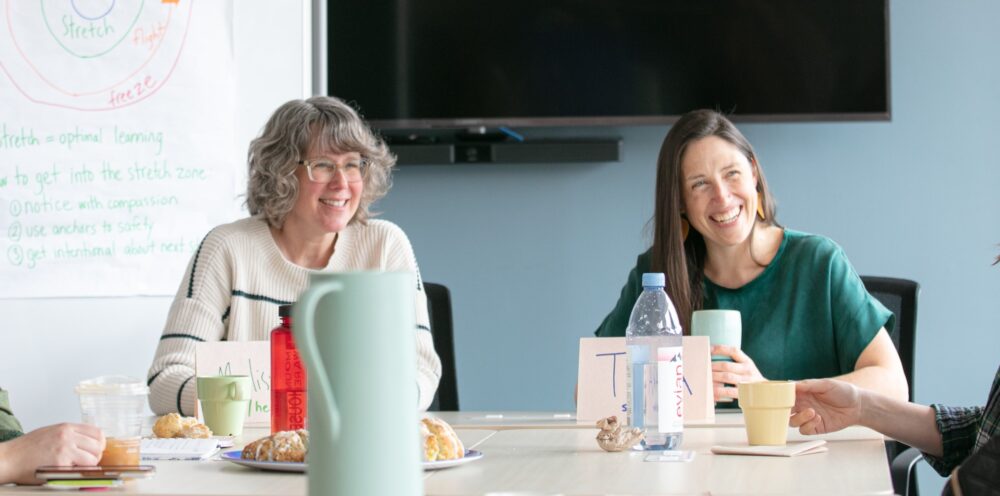
Learning to Bounce is a program that explores the hidden emotional demands of academic tasks so students can more accurately label and address what’s getting in the way of completing work. Offered by occupational therapists in Student Wellness Services, Learning to Bounce was researched in 2022/23 with exciting statistically significant improvements in students’ ability to bust shame, foster self-compassion, manage stress, maintain motivation and recover from setbacks. Read the Learning to Bounce report (PDF).
The program offers weekly groups, study hall and one on one support for undergraduate and graduate students whose mental health or ADHD is impacting academic progress, motivation or performance. Through the program, Student Wellness Services is supporting the success and belonging of neurodivergent students and helping ensure all students can thrive at U of G.
Women in Engineering supports inclusion and retention of women in STEM
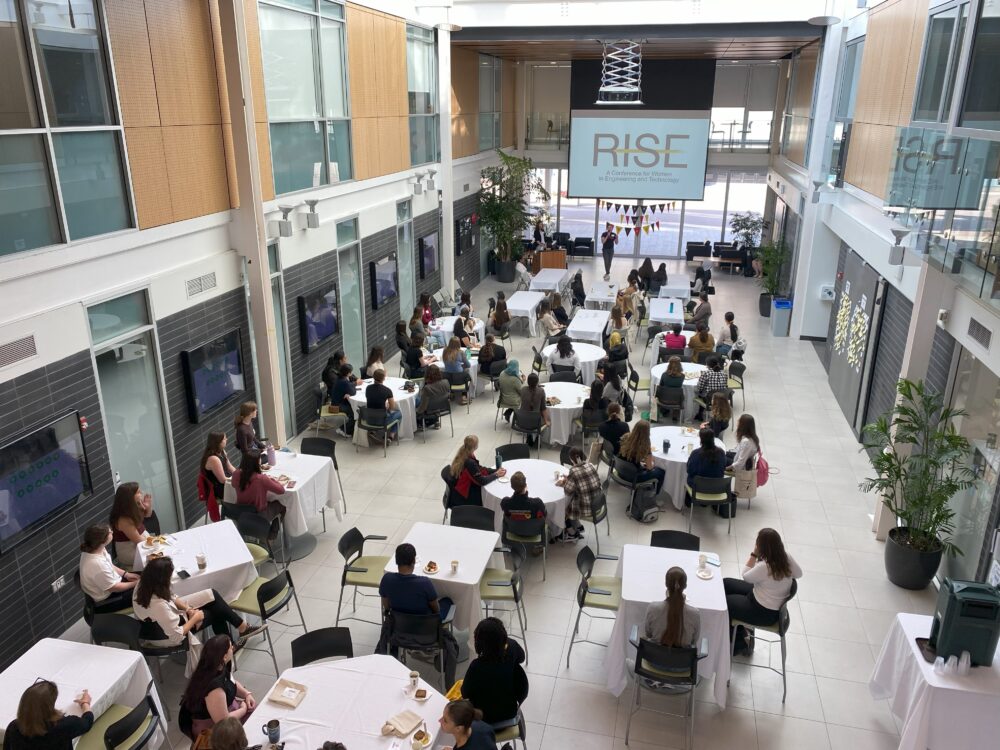
Launched in 2022, a series of new Women in Engineering initiatives aim to help close the engineering gender gap. “Climate and retention are big issues for women who drop out of engineering early in their career,” says Dr. Jana Levison, Doody Family Chair for Women in Engineering and an associate professor in the School of Engineering. “At Guelph we’re focused on outreach too, to get the word out to younger students about what engineering is. Often people don’t know what engineers do.”
Under the umbrella of Women in Engineering, the outreach programs Go ENG Girl, Go CODE Girl, and newly-launched Go PHYS Girl invite school-aged youth to campus to explore engineering and coding through interactive workshops and opportunities to interact with current undergraduate students. For women and gender-diverse engineers & scientists, Women in Engineering also hosts an annual RISE conference for attendees to openly and safely discuss professional development topics, such as career paths and hurdles.
FREED program removes barriers to field work
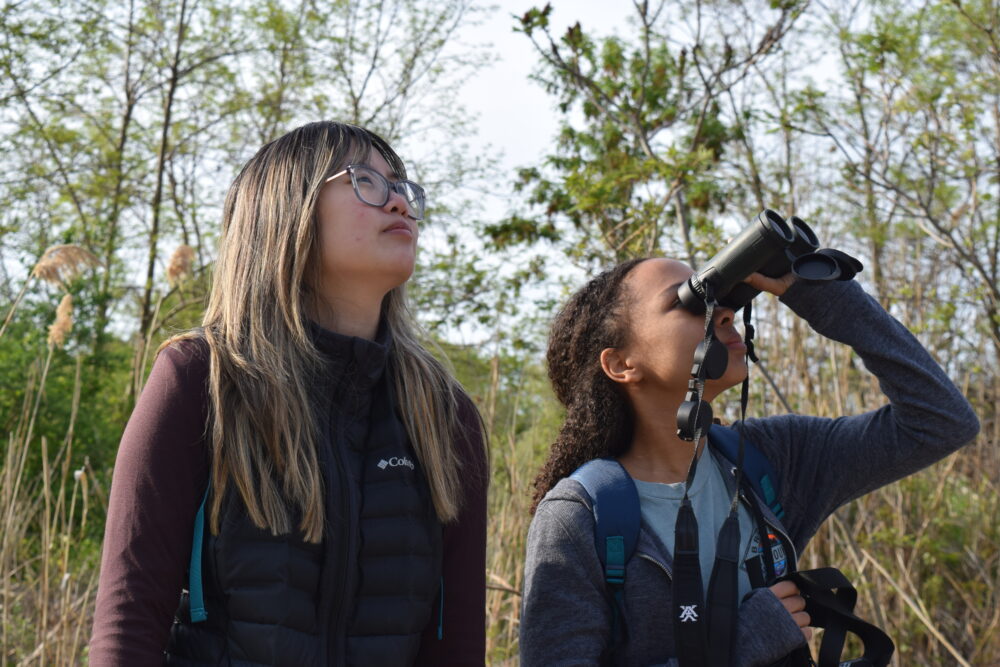
In 2023, Integrative Biology PhD students Alannah Grant and Jonathan Chu organized a cohort of U of G students to participate in Field Research in Ecology and Evolution Diversified (FREED). FREED provides access to a free field course for Black, Indigenous and Racialized students who are often underrepresented in the fields of ecology and evolutionary biology.
“Field work and field work experiences are actually quite a privilege,” said Grant. “For this event, we really wanted to make sure that students are just showing up to learn and they don’t have to worry about anything else.”
This year, the College of Biological Sciences and the School of Environmental Sciences will again support FREED, sending 10 U of G students to a week-long excursion at the Algonquin Wildlife Research Station from August 18 to 24.
OUTline grows from phone line to robust programming for LGBTQ2IA+ Students
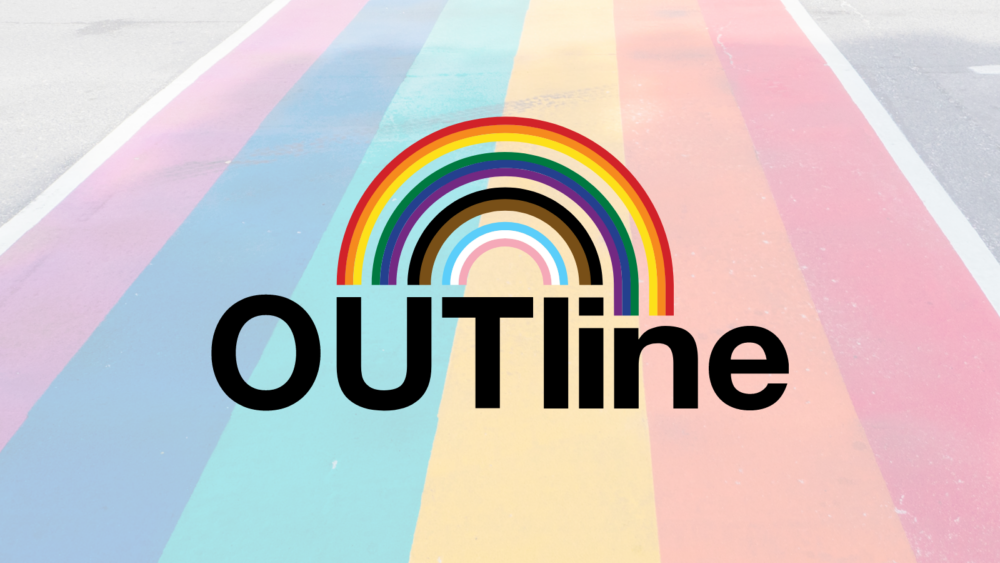
Student Experience’s OUTline program is celebrating 50 years as U of G’s resource and support service for LGBTQ2IA+ students. Since its inception, the original confidential phone line has been replaced by a live online chat and community building programming where students discuss topics such as coming out or exploring labels. For students, by students, OUTline programming includes events like the LGBTQ2IA+ Weekly Discussion, the Trans and Gender Diverse Students’ Social, spaces to learn about and discuss Pre-Colonial Queer Identities, Lego and Minecraft Nights that center queer and neurodiverse identities, and more!
To facilitate programming and staff the OUTline Online Chat, a volunteer team of students is trained in OUTline’s core values of sex positivity, harm reduction, anti-oppression, humanism, confidentiality, and peer-based support.
Indigenous STEM Mentorship program builds connection
The Indigenous mentorship program at U of G gives First Nations, Inuit and Métis undergraduate students in any STEM program an opportunity for one-on-one mentorship with faculty in science and engineering. Over 50 faculty across 10 STEM departments have volunteered to be mentors.
The mentorship program enables students to widen their community of support, get valuable academic advice, develop their skills, build their network, and get graduate school and career wayfinding support. Through the program, several Indigenous students have established meaningful long-lasting relationships with their mentors.
These are just a few examples of the many ways our campus community is realizing the vision laid out in Our Time.
Have a suggestion of research, an initiative, an individual or a program we should feature? Email campusnews@uoguelph.ca.
